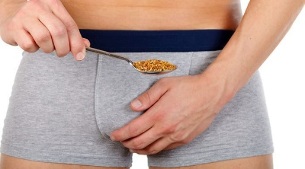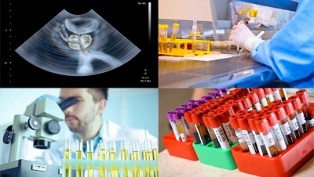
Prostatitis is one of the most common urological diseases in men.
According to WHO research, at least 30% of men between the ages of 20 and 50 suffer from this disease and every year this insidious disease affects more and more young people. Cases of inflammation of this organ have been reported even in children aged 15-16 years.
The causes of chronic prostatitis
The disease itself is acute and chronic. Chronic prostatitis develops with early or ineffective treatment of acute prostatitis. Unfortunately, in the chronic form of prostatitis, a person cannot rely on complete recovery.
Due to the development of the disease, congestive (congestive) and infectious prostatitis are also distinguished.
Congestive prostatitis occurs with circulatory disorders in the pelvic area, as well as stagnation of prostate secretions. Poor permeability and regular accumulation of blood in this area over time leads to the development of foci of inflammation. As a result, the prostate gland is deformed, which in turn has a negative effect on neighboring organs. An enlarged organ can constrict the urinary tract, disrupt a person's urinary function, and also compress the bladder, causing regular urination. The development of prostate congestion is most often affected by a sedentary, sedentary lifestyle. Bad habits and obesity also increase the chance of getting sick.The cause of infectious diseases is much more difficult to find than congestion, because the disease can develop on the basis of many aphrodisiac and fungal diseases. An infection, which enters a person through sexual contact, spreads throughout the body, but the first on the way is the prostate, where most of the pathogens accumulate. The multiplication of bacteria in this organ over time leads to its inflammation and then to the development of a kind of purulent outbreak (even after healing, scars remain).
However, infectious prostatitis is not always the result of a sexually transmitted disease. There are thousands of bacteria and microorganisms in the human body that regularly come from the world around us. Immunity easily copes with most of them, unless, of course, it is weakened by the negative effects of smoking, alcohol, constant stress and nervousness. In such cases, the immune system is not able to fully regulate the growth of bacteria or fungi, as a result of which their uncontrolled proliferation occurs, ultimately affecting the prostate.The infection does not stop in the prostate, some bacteria move through the urethra, enter the bladder and kidneys, which leads to regular urination.
Symptoms of chronic prostatitis
The first signs of chronic prostatitis first appear with the regular need to urinate and discomfort in the perineum, similar to pain. This can be felt by pressing lightly on the lower abdomen or anus.
Uneven urine flow is another symptom of chronic prostatitis. Spraying in different directions indicates deformity of the muscle, which should block the urinary tract (the muscle is located at the base of the prostate).Jet weakness is also a negative sign, which indicates more about the infectious nature of the disease, in which several organs of the urinary system are affected at the same time. In some cases, there are problems with erection, but more often they arise from a difficult psychological state of a person.
Disease Diagnostics
The diagnosis in the early stages of prostatitis is the same, whether it is normal or chronic, infectious or stagnant. Treatment is most often done by andrologists (in some cases, urologists).

After consultation and internal examination, the doctor will write a referral for examinations:
- Coating.The collection is performed using a special probe, which is inserted into the patient's urethra (the analysis allows you to find out which bacteria and in what quantity are in the patient's urethra). Before the test, you should avoid urinating for about 4 hours.
- Prostate juice analysis.The prostate gland has a porous structure and with inflammation, some parts of this organ are simply blocked. Although the inflammatory process is in full swing, regular examinations show nothing. Here comes the rescue of the secret (prostate juice). The doctor rubs the prostate through the anus, thus squeezing the secretion from the inflamed areas and then collects it from the urethra.
- urinationUsually administered after smearing, it allows you to discover the pathology of the bladder and kidneys.
- Blood test- Tests for infections.
- Ultrasound- examination of the prostate, bladder and kidneys.
Treatment of chronic prostatitis in men
After completing all the tests, the andrologist proceeds with the treatment. In the case of congestive prostatitis, the treatment is simpler. It usually involves taking antibiotics and immunosuppressants. Inflammation is removed with suppositories, which must be inserted into the anus.
With infectious prostatitis, everything is much more complicated, for a more accurate diagnosis, some tests will have to be repeated. Treatment will be prescribed depending on the severity of the infection. Most of the time these are droppers and antibiotics. The second step will be the immune correction and elimination of toxins from the body. Along with drug therapy, prostate massage and physiotherapy (electrophoresis and magnetotherapy) are used.Very often, even after complete recovery, the patient complains of discomfort in the perineal area and frequent urge to urinate. This condition is not uncommon. The fact is that even after the removal of the inflammatory process, the scars remain in the organ, which affects its normal function. To eliminate this problem, there are certain drugs (suppositories with enzymes) that aim to absorb the gums.Insidious infectious prostatitis is the fact that with a supposedly complete cure, some of the pathogens remain in the body and multiply over time, causing the prostate to recur. To avoid this, it is recommended that you have regular check-ups and see a doctor.
Prevention of chronic prostatitis
The treatment of chronic prostatitis is to maximize the prolongation of the recession and the timely suppression of new inflammatory processes. To achieve a long-term recession and therefore avoid regular hospital visits, you need to radically change your lifestyle.
For starters, do not get cold under any circumstances. Any, even the slightest, drop in temperature can cause deterioration. Just ride a bus in a cold seat or sit on a plan. If possible, avoid sedentary work or warm up at least once a hour for five minutes, say goodbye to all bad habits completely:
In addition, it is important to follow a special diet for chronic prostatitis. It is not recommended to eat smoked products, excessively fatty foods, carbonated drinks and certain types of spices (hot spices).

Include in your diet:
- chicken?
- fish?
- fermented dairy products (cottage cheese, kefir, low-fat sour cream)
- vegetables?
- fruit?
- honey.
The use of pumpkin seeds has a very positive effect on the prostate.
If you have been diagnosed with chronic prostatitis, do not get depressed! Yes, the disease is quite complicated, but if you follow all the doctor's recommendations and follow a healthy lifestyle, the pain and constant discomfort will stop bothering you for a long time. Taking care of your health and regular examinations by an andrologist will allow you to live a full, colorful life!


























